Noah’s Pudding
Photograph by: Pierre Obendrauf, The Gazette
If a total stranger offers you a cup of pudding in the next few weeks, don’t be surprised.
Members of the local Turkish community are distributing 5,000 servings of Noah’s pudding, a traditional treat they trace all the way back to the biblical story of Noah’s ark.
This is more than a random act of dessert.
Organizers hope the offerings will promote peace and heal rifts between different faiths and cultures.
A tall order for a cup of pudding, but then, this is no ordinary dessert.
Noah’s pudding is one of the world’s oldest recipes.
According to Turkish tradition, it originated when Noah’s ark landed on Mount Ararat after the great flood recounted in the Book of Genesis.
The story goes that food was running short on the ark and Noah told the survivors to contribute whatever they had left to celebrate their safe arrival. The result was a sweet porridge of wheat, chickpeas, dried beans, apricots, raisins, orange peel and sugar.
In Turkey, people offer the pudding to friends, neighbours and the poor during Muharrem, the first month of the Islamic calendar.
In recent years, Turkish Muslim organizations across North America have transplanted the tradition as a way to reach out to the wider community.
“Our aim is to get people from different faiths, bring them together on a common platform of love and tolerance and build understanding,” said Fehmi Kala, executive director of the Dialog Foundation, a non-profit organization founded three years ago (By Fetullah Gulen) to build bridges between different religious and cultural groups.
Montreal’s Turkish community numbers 10,345, according to the 2006 census. Kala said most live in Montreal North, St. Michel and St. Laurent.
Nezihe Tekin, 27, was one of a dozen women preparing thousands of portions of pudding last week in the Communauté
Islamique Turque du Québec, a community centre in the St. Michel district.
Turkish cuisine is known for its desserts, said Tekin, as she stirred a huge stockpot.
“We have a saying, ‘let’s eat sweets and speak sweetly,’ ” she said.
The most famous, of course, is Turkish delight, a confection served to guests with Turkish coffee.
Rice pudding is a popular summer dessert, while baklava is mostly eaten during the winter, Tekin said.
Noah’s pudding is traditionally cooked on the 10th day of Muharrem to commemorate Noah’s landing, but it is also eaten at other times of year in Turkey.
The pudding is surprisingly delicious, considering its eclectic ingredients, said Tekin.
It is an apt symbol of diversity, she said. Just as each of the ingredients contributes its own flavour, different faiths and cultures enrich society.
“When you put it all together, you can make something nice, no matter what colour or religion.”
Kala said Turkey has been a cultural crossroads since antiquity because of its strategic location as a land bridge between Europe and Asia and its proximity to Africa.
He grew up in Antioch, formerly a great city of the ancient world and a cradle of Christianity.
“My friends were Armenian, Kurdish, Shiite, Sunni, Christian and Jewish,” said Kala, 30, who was a history teacher until immigrating to Canada six years ago. “We all got along well.”
When Tekin came to Montreal eight years ago as a 19-year-old newlywed, she didn’t know anyone in the Turkish community, so she cooked Noah’s pudding for her Italian landlord in the St. Michel district.
“He liked it and my husband said, ‘Cook it for all the neighbours.’”
The pudding has endless variations, some calling for as many as 40 ingredients.
Some versions use barley instead of wheat, or a mixture of wheat and rice. Milk is optional. Many recipes call for rose water or orange flower water.
It is garnished with nuts, pomegranate seeds and sometimes cinnamon.
Variations exist throughout the Mediterranean world. Armenians serve a similar pudding at Christmas and Sephardic Jews have a tradition of preparing the pudding at Tu Bishvat, a holiday associated with the planting of trees.
The idea of distributing Noah’s pudding to the wider community in different North American cities is credited to Fethullah Gülen, a Turkish Muslim cleric living near Philadelphia.
Gülen is the leader of a global movement that reconciles Islamic mysticism with modern education and tolerance of other faiths. The author of more than 60 books, Gülen is responsible for the creation of a worldwide network of schools, universities, media outlets and community organizations. He has condemned Islamic terrorism and has also spoken out against the Israeli offensive in Gaza.
Local Turkish businessmen and other members of the community underwrote the costs of the Noah’s pudding distribution, said Kala.
The Dialog Foundation started distributing the pudding three years ago. It also holds Turkish arts festivals, intercultural dinners and interfaith conferences throughout the year.
Last week, volunteers distributed the pudding to 1,500 worshippers at St. Joseph’s Oratory.
The foundation will hold distributions at churches, university campuses, schools, nursing homes and homeless shelters in the coming weeks.
On Feb. 17, volunteers will cook Noah’s pudding with students at Concordia University. The cooking session will provide an opportunity to talk with students from a wide spectrum of religious and cultural backgrounds, he said.
Other pudding distributions will take place at the following locations:
St. John Brébeuf Parish, 7777 George St., LaSalle: Sunday at 9 a.m. and 11 a.m.
Montreal North, door to door distribution: Sunday and Monday, after 5 p.m.
Montreal Police Station 39, Montreal North: Feb. 3 at 11 a.m.
McGill University: International Student Network potluck dinner at Gert’s, 3480 McTavish St., Feb. 4, 6:30 to 7:30 p.m.
The Church of St. James the Apostle, 1439 Ste. Catherine St. W.: Feb. 8 at 11 a.m.
Dans la Rue: Volunteers will ride in the van to share Noah’s Pudding with street youth. Feb. 8 and 9 at 8 p.m. and 10 p.m.
École Sogut (a Turkish private school): Feb. 9 at noon.
Université de Montréal, 3200 Jean Brillant St.: Feb. 10, 10 a.m to 2 p.m.
Montreal Unitarian Church, 5035 de Maisonneuve Blvd. W.: Feb. 15, 11 a.m to 1 p.m.
Concordia University, Multi-faith Chaplaincy Services, 2090 Mackay St.: Feb. 17, 11 a.m. to 1 p.m.
© Copyright (c) The Montreal Gazette
Noah’s Pudding: The recipe
By Marian Scott, The GazetteJanuary 27, 2009
Esem Baran (left), Risele Alper (centre) and Demex Kesmen pour cooked Noah’s Pudding in a cooling vat at the Turkish Cultural Centre on January 17, 2009.
Photograph by: Pierre Obendrauf, The Gazette
There are endless versions of this nutritious pudding. Feel free to experiment with other grains, fruits and nuts or to substitute honey for the sugar. If desired, you may flavour it with rosewater or orange flower water after the pudding is cooked.
The recipe calls for white pearl wheat. Pearl wheat resembles pearl barley but is lighter in colour. White wheat is a whole grain that has a paler colour than the more common red wheat. It is available at Middle Eastern groceries, bulk stores and health food stores. This version is made with milk but you may substitute water.
Noah’s Pudding
Serves 10
3⁄4 cup (175 mL) white pearl wheat
* 1⁄4 cup (50 mL) dried white beans
* 1⁄4 cup (50 mL) dried chickpeas
1⁄3 cup (75 mL) golden raisins
1⁄3 cup (75 mL) whole, blanched almonds
4 dried apricots, diced in 1/4-inch (6 mm) pieces
** 1 tablespoon (15 mL) fresh orange rind, chopped in 1⁄8-inch (3 mm) dice
2 cups (500 mL) sugar
4 cups (1 litre) of water, plus additional water for soaking and cooking
2 cups (500 mL) of whole milk (you may substitute water)
To garnish: shelled pistachios, chopped walnuts, pomegranate seeds and/or cinnamon
* You may substitute 1/3 cup each of canned beans and chickpeas.
** Use a sharp knife or vegetable peeler to remove the zest (orange-coloured skin) of the orange. You can include a thin sliver of the white pith. Use a sharp knife to chop the zest.
Rinse the wheat, white beans and chickpeas several times. Place each in a separate saucepan and add water to cover generously. Bring each to a boil, then simmer for 15 minutes. Cool and leave to soak overnight in the refrigerator.
Soak the almonds overnight in cold water. Soak the raisins and apricots in water overnight or for at least two hours.
The next day, drain the wheat, reserving the soaking water, and place it in a medium saucepan with 4 cups (1 litre) of water. (Use the soaking water). Bring to a boil, then lower the heat and simmer for one and a half hours, stirring occasionally, until the wheat is soft and plump. (Add extra water if needed.)
Meanwhile, in separate, small saucepans, bring the beans and chickpeas to a boil and simmer until tender but not mushy, about one hour. (The cooking time can vary, depending on how fresh the beans and chickpeas are.) Squeeze the outer skins from the chickpeas and skim off any skins that float away from the beans .
Drain the soaked almonds, raisins and apricots. Drain the cooked beans and chickpeas.
Place the cooked wheat with its liquid in a large stock pot or the top of a double boiler. Add the milk. Partially purée the mixture by buzzing it with a hand blender for about 10 seconds. (Alternatively, use a potato masher.)
Add the drained fruit and almonds, drained, cooked beans and chickpeas and the sugar to the wheat-milk mixture.
Simmer for 30 minutes, stirring frequently, until the pudding thickens to the consistency of an Indian-style rice pudding. (You can adjust the consistency by adding extra milk or water or by increasing the cooking time.)
Cool. Spoon into one large or several small bowls. Garnish with shelled pistachios, walnuts and pomegranate seeds or sprinkled with cinnamon.
© Copyright (c) The Montreal Gazette


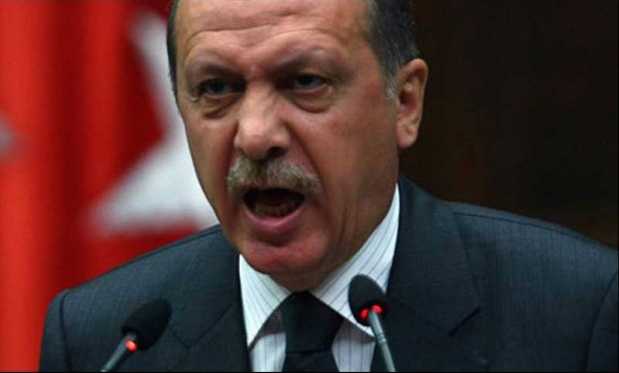
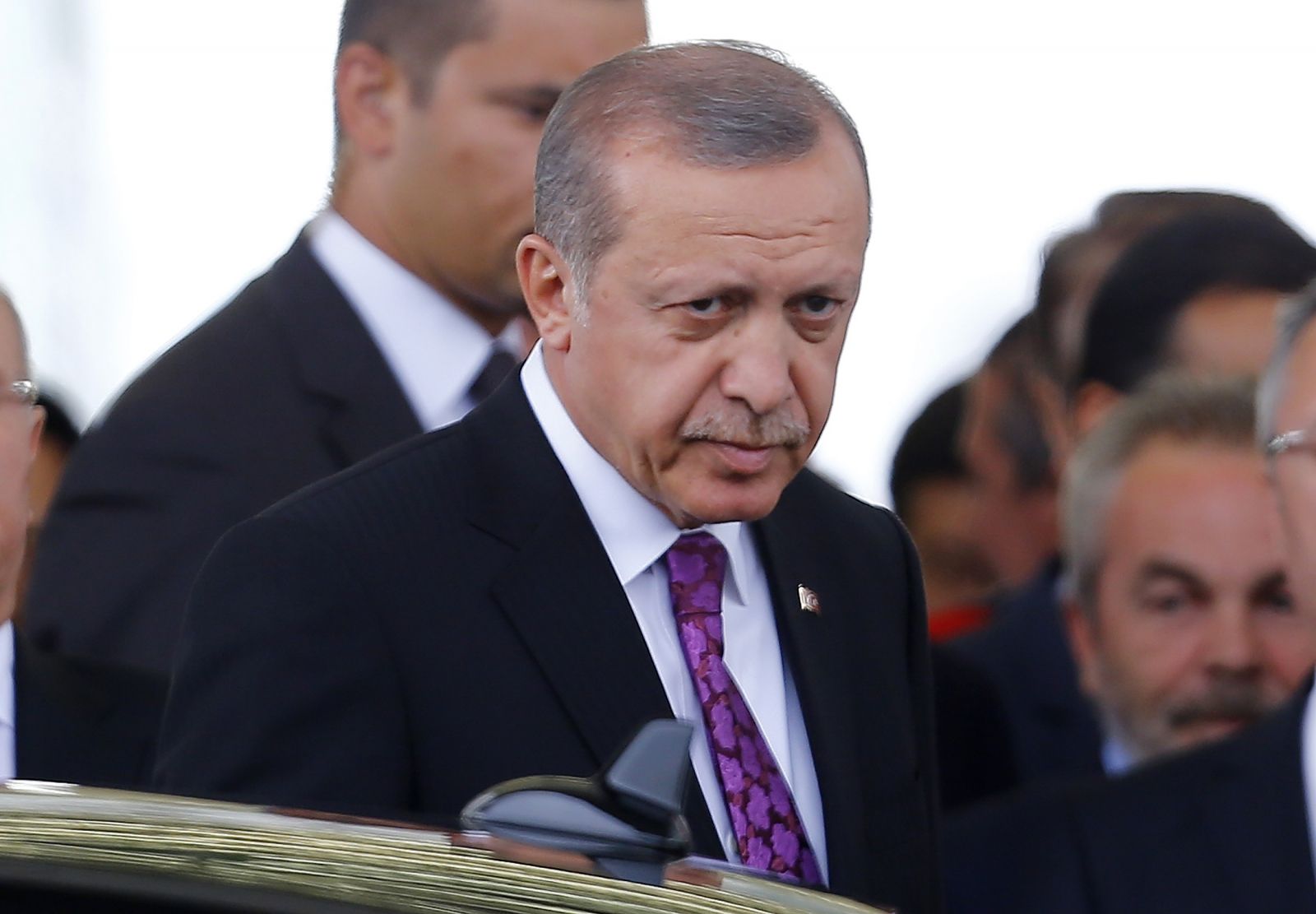
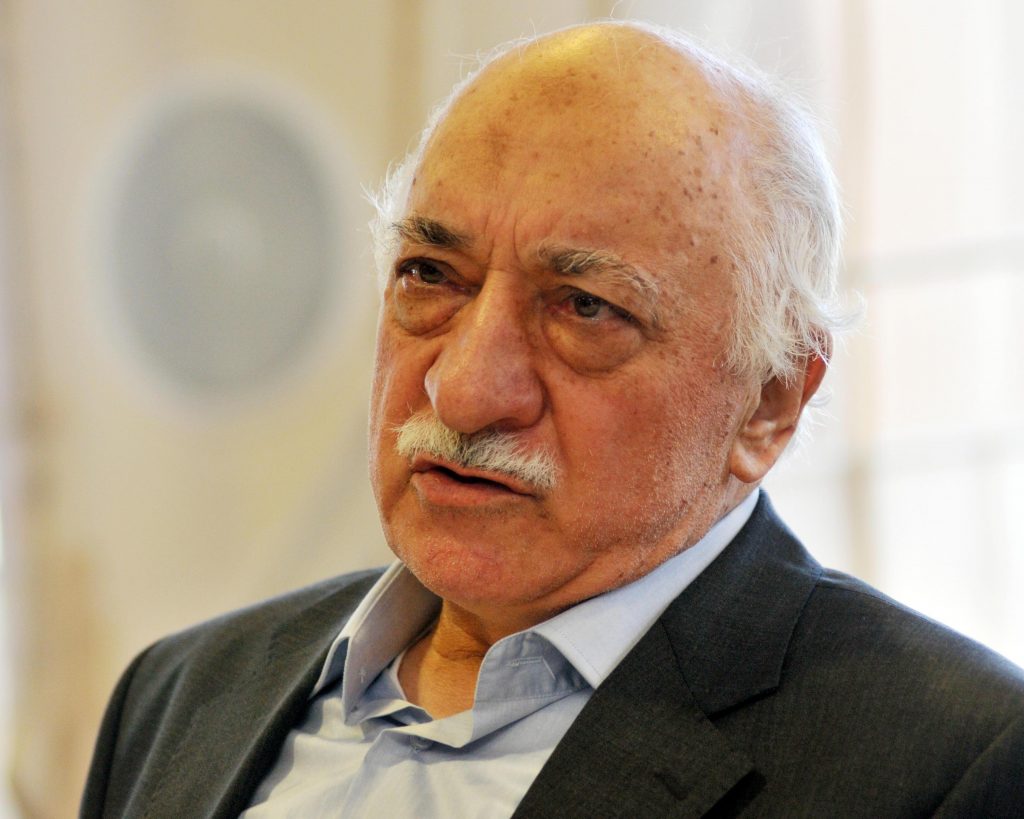
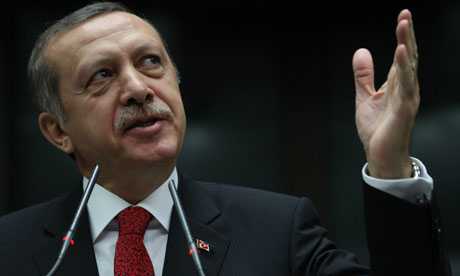
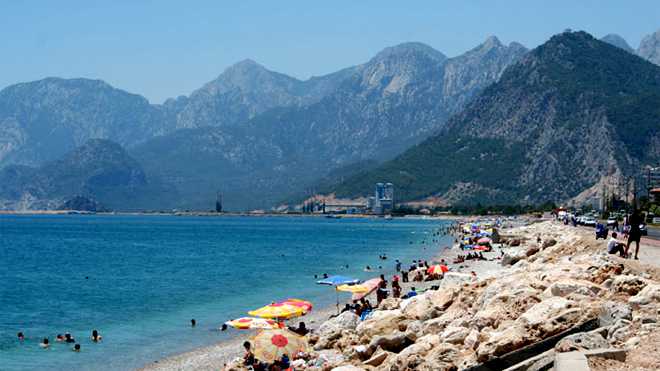
Thank you for this. Excellent as usual.
Ithink it is those shoes they are wearing….. First Muntadar threw his Turkish made shoes at Bush, and now the Turkish Prime Minister is head-butting with Perez. Yes Im sure he has his bought a new pair of Muntas :)))
29 Jan 09 at 11:08 pm
[…] Read more here on PULSE.ORG […]
It must be in those Turkish shoes they are wearing… « Ignited Identity
29 Jan 09 at 11:11 pm
Woohoo! Feels good!
29 Jan 09 at 11:28 pm
Following the massacre on Google Trends Turkey was one of the countries which seemed most interested in Gaza. I’m sure he will have a lot of popular support for this at home.
Well done Mr Erdogan!
30 Jan 09 at 12:31 am
Shame on all the shameless arab leaders. They are cowards and puppets. Very soon they will all go to hell for their silence. Yaaaaaaaaaaaaaaaayyyyy Erdogan
30 Jan 09 at 12:52 am
[…] Veo más en Pulse, en inglés. “A star is born“. Possibly related posts: (automatically generated)Israel destruye y deja sitio al […]
Erdogan, Gaza, la dignidad de Turquía y Davos « Situjihadismo
30 Jan 09 at 1:07 am
Thank you, PM Erdogan, for standing up for what is right, for showing some spine and conscience when much of the rest of the world’s sham representatives stayed silent. Shame Shame Shame to most of the Arab “leaders”. Kudos to Türkiye.
30 Jan 09 at 1:12 am
That was beautiful! Brought tears to my eyes and a lump in my throat. What a man. Erdoğan was heroic, and he made the others look like dickless little prigs at tea. Viva Türkiye! To think the EU gave them so much shit about membership. They should have been pleading.
30 Jan 09 at 1:37 am
Al Jazeera was just showing Erdogan receive a hero’s welcome on his return. Crowds were gathered at the airport with Turkish and Palestinian flags to greet him. I bet the Kemalists are squirming.
30 Jan 09 at 1:49 am
Turkey has some room to maneuver vis-a-vis Israel and the US, which is not speaking much of those Arab states. Erdogan will be showered with praise.
How deeply ironic is it that those who are the most vocal on the Palestinian cause ARE not Arab but Turk, Lebanese Shiite and Persian?
30 Jan 09 at 4:59 am
A shame file of Arab journalists giving Israel a free pass from Iqbal Tamimi:
30 Jan 09 at 8:02 am
Shame on American leaders. Even when america presidents were kicked on th face( by Sharon as reported by BBC during gaz conflict of 2002, albeit metaphorically) Americans could not react out of fear of Zionist lobby.Erdogan is man with back bone. a man of honour and courrage.
30 Jan 09 at 1:22 pm
Muhammad,
I just read over at Philip Weiss’s blog a rather more detailed description of what went over at Davos. I haven’t watched the entire episode unfold but I wonder what is your take on it?
Nevertheless, Peres is one official on crack.
31 Jan 09 at 4:56 am
[…] consistently and impartially applying rules to speakers. That debate in which Turkish PM Erdoğan walked out involved deliberately unequal times for speakers (see my calculations of actual speaking times in […]
Peres’s Propaganda and Gaza Panel’s Biased Moderator « Silver Lining
31 Jan 09 at 3:13 pm